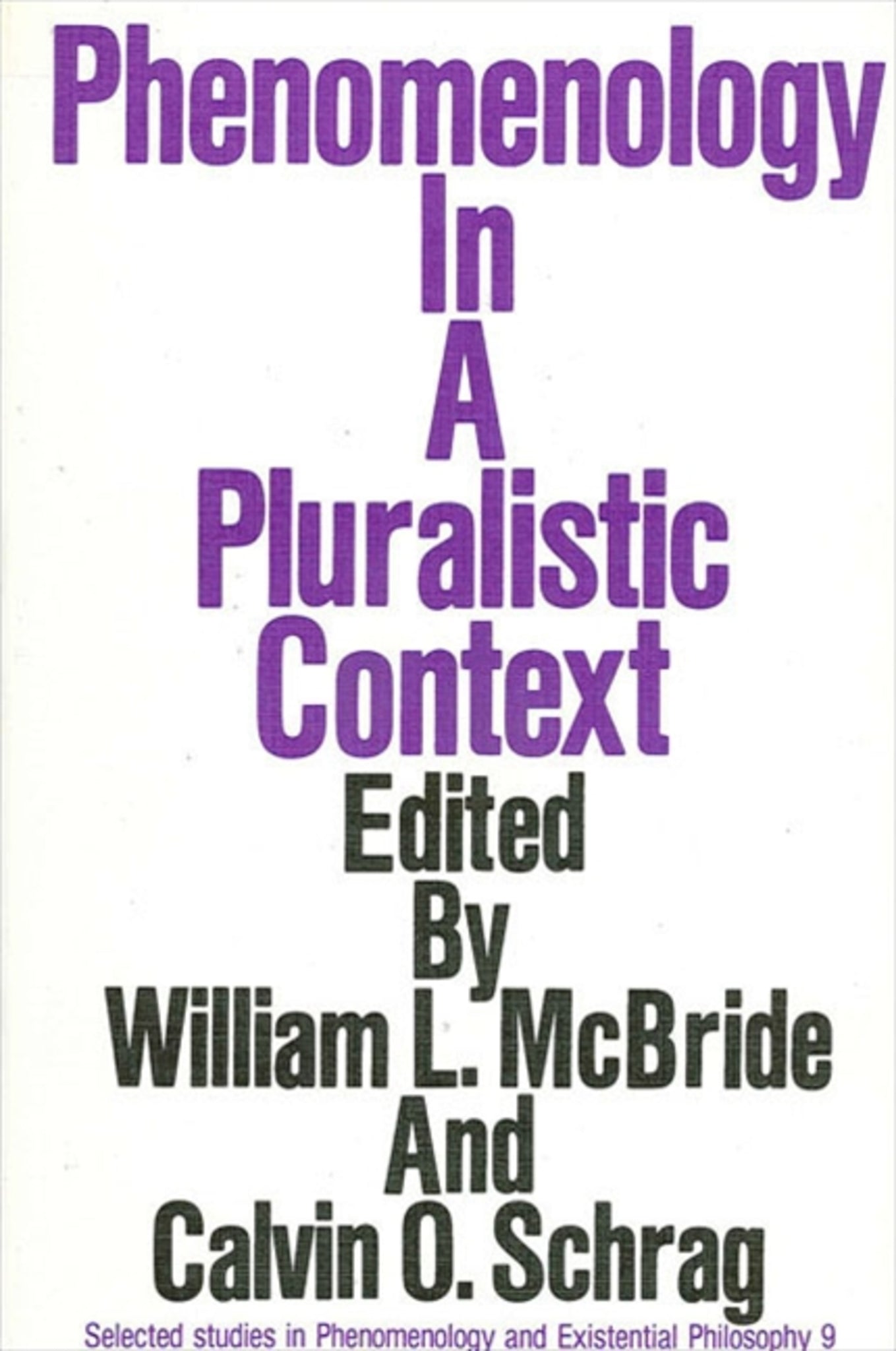We're sorry. An error has occurred
Please cancel or retry.
Phenomenology in a Pluralistic Context

Some error occured while loading the Quick View. Please close the Quick View and try reloading the page.
Couldn't load pickup availability
- Format:
-
30 June 1984

Offers various views on phenomenology and existentialism.
Phenomenology in a Pluralistic Context contains papers selected from three years of meetings of the Society for Phenomenology and Existential Philosophy (SPEP). The essays are representative of the most current thinking among North American philosophers who have been influenced by the phenomenological movement. A majority of the selections reveals a considerable mutual influence between phenomenology and other philosophical currents. Special emphasis is given to issues in social and political theory; the philosophy of medicine, of art, of language, and of religion; phenomenology's relationship to Kantianism and to Marxism; and the figures of Merleau-Ponty, Sartre, and Heidegger.


"The panoply of selected contributions reflects the changing scene and ongoing discussions in American and European phenomenology and existentialism. Discernible throughout are dialogues and disputes with representatives of structuralism, post-structuralism, critical theory, analytical philosophy, Marxism, and process philosophy. This itself stands as a testimony to the cosmopolitan thrust of original phenomenological and existential reflection and its resistance to philosophical closures." — from the Introduction
PART I. INTERPRETATIONS OF THE PHENOMENOLOGICAL TRADITION
1. LINDA A. BELL
Loser Wins: The Importance of Play in a Sartrean Ethics of Authenticity
2. BERNARD P. DAUENHAUER
Merleau-Ponty's Political Thought: Its Nature and Its Challenge
3. THOMAS R. FLYNN
From Socialisme et Liberte to Pouvoir et Liberte: The Cast of Jean-Paul Sartre
4. WILLIAM S. HAMRICK
Interests, Justice, and Respect for the Law in Merleau-Ponty's Phenomenology
5. REINER SCHURMANN
"What Must I Do?" at the End of Metaphysics: Ethical Norms and the Hypothesis of a Historical Closure
6. HANS SEIGFRIED
Heidegger and the Problem of a Unified Theory of Action
PART II. PHENOMENOLOGY AND OTHER PHILOSOPHICAL CURRENTS
7. MILDRED BAKAN
Karel Kosik's Phenomenological Heritage
8. TOM ROCKMORE
Marx and the Roots of Existential Social Thought
9. RICHARD F. GRABAU
Kant's Proto-Phenomenology
10. GEORGE A. SCHRADER, JR.
Kant and Phenomenology
PART III. PHENOMENOLOGY OF MEDICINE
11. RICHARD M. ZANER
Flirtations of Engagements? Prolegomenon to a Philosophy of Medicine
12. MARY C. RAWLINSON
The Facticity of Illness and the Appropriation of Health
13. ARLEEN B. DALLERY
Illness and Health: Alternatives to Medicine
PART IV. PHENOMENOLOGY OF ART AND AESTHETICS
14. JOHN M. ANDERSON
Skip for a Phenomenology of the American Experience
15. CYRIL W. DWIGGINS
Affectively Possible Worlds: A Sketch for a Theory of Aesthetic Experience
PART V. PHENOMENOLOGY OF LANGUAGE
16. RONALD BRUZINA
Does the Transcendental Ego Speak in Tongues? or The Problem of Language for Transcendental Reflection in Husserl's Phenomenology
17. DAVID LEVIN
The Poetic Function in Phenomenological Discourse
18. J. N. MOHANTY
The Destiny of Transcendental Philosophy
PART VI. PHENOMENOLOGY OF RELIGION
19. ROBERT R. WILLIAMS
The Problem of God in Sartre's Being and Nothingness
PART VII. PHENOMENOLOGY OF SOCIAL RELATIONS
20. DAVID CARR
Personalities of a Higher Order
21. JAMES L. MARSH
Objectivity, Alienation, and Reflection
Contributors
Notes
Index



